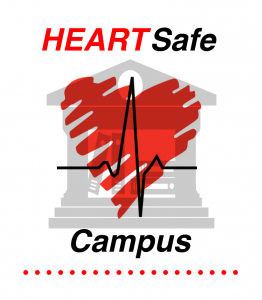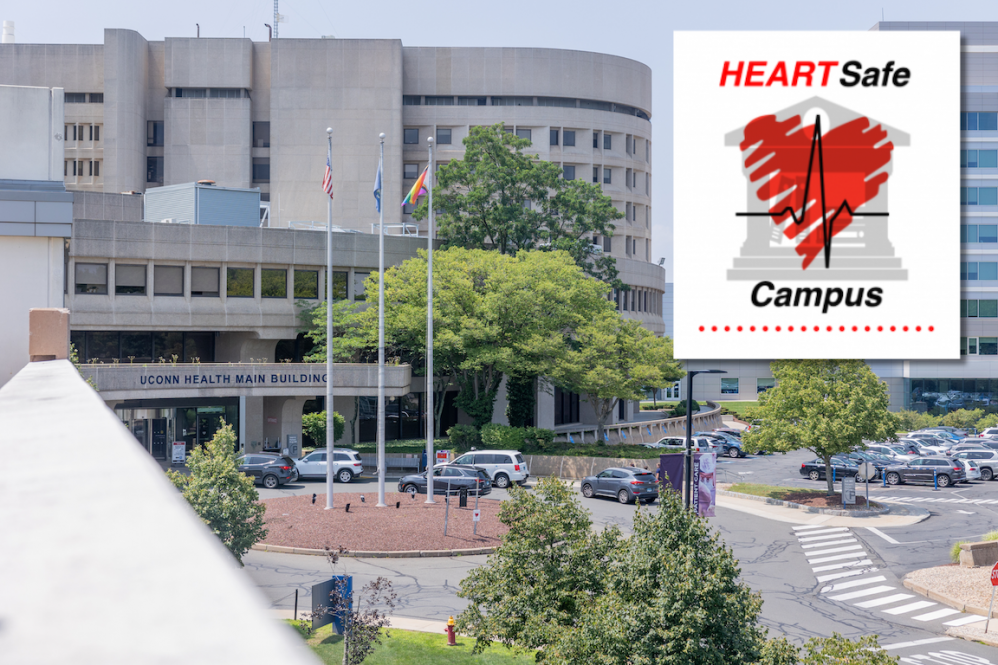The Connecticut Department of Public Health, in collaboration with the American Heart Association, has redesignated UConn Health as a ‘HEARTSafe Campus’ effective August 29.
 The HEARTSafe Campus has 30 AEDs and Stop the Bleed kits installed that can be found throughout UConn Health in common areas of its buildings and facilities. Anyone on the UConn Health campus whether patients, visitors, employees, contractors, staffers, or students, can always easily access an AED or Stop the Bleed Kit at any time should an emergency situation arise. Additionally, a University Safety dispatcher can be reached 24/7 to advise you on the closest AED to your location during an emergency.
The HEARTSafe Campus has 30 AEDs and Stop the Bleed kits installed that can be found throughout UConn Health in common areas of its buildings and facilities. Anyone on the UConn Health campus whether patients, visitors, employees, contractors, staffers, or students, can always easily access an AED or Stop the Bleed Kit at any time should an emergency situation arise. Additionally, a University Safety dispatcher can be reached 24/7 to advise you on the closest AED to your location during an emergency.
“When the need arises, every second counts,” says UConn Fire Chief William Perez. “Get the free PulsePoint AED App, to make the location of these lifesaving tools readily available on your phone. Bystander AED access and CPR doubles a cardiac arrest victim’s chance of survival. You can help save more lives.”
Three years ago in September 2020 UConn Health became Connecticut’s first-ever designated ‘HEARTSafe Campus’ medical center and remains the only hospital with this special designation.
UConn Health’s leadership as a HEARTSafe Campus followed in the footsteps of its Town of Farmington, which is an accredited HEARTSafe Community and interestingly, the University of Connecticut which in 2019 was the first institution of higher education in the state to earn the designation.
“We commend you on your efforts to save lives and improve the health of your workplace,” wrote the Commissioner of the Connecticut DPH, Dr. Manisha Juthani to UConn Fire Chief William F. Perez and UConn Health. “On behalf of the Connecticut Department of Public Health, and the America Heart Association, congratulations to the University of Connecticut, UConn Health for having met the renewal requirements of a designated HEARTSafe Campus.”
The DPH shared that this three-year redesignation recognizes UConn Health’s commitment to promote and provide improved cardiac response and care to the staff, students and visitors of its campus utilizing the ‘Chain of Survival’ of early 9-1-1 access, cardiopulmonary resuscitation, defibrillation and advanced care.



